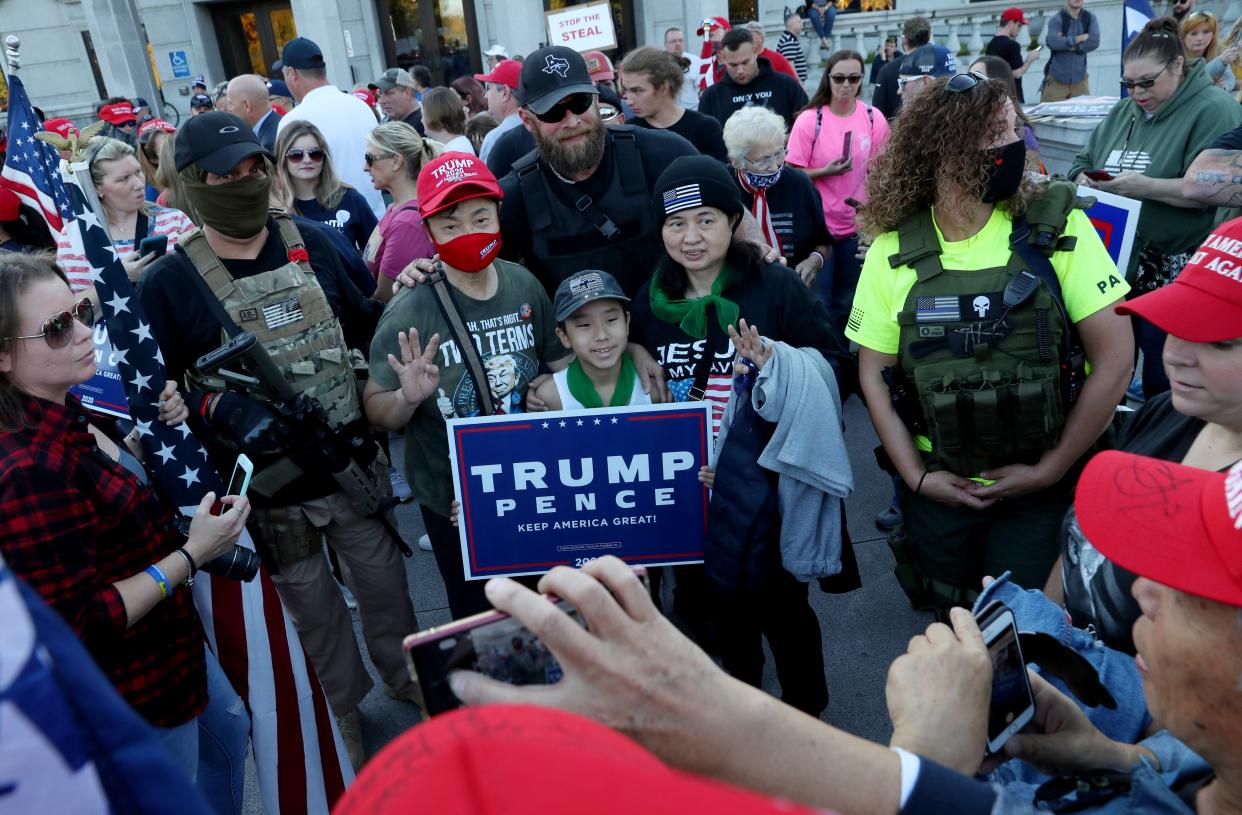Like Kenya and Burundi, the US has now met our criteria for electoral violence thanks to Trump

Protesters have taken to the streets across the US while Trump continues to refuse to officially concede the election
(REUTERS)It’s been weeks since Joe Biden won the presidential election, and while the Trump administration has finally initiated the transfer of transition funds, the president himself is still refusing to concede. Instead, he has actively worked to stop or slow ballot recounts, attacked the process on television and social media, and encouraged state and federal officials to join him in undermining the election. Even worse, he is now challenging the results, albeit without success, with more than 30 lawsuits in courts across the country. In the twilight of his administration, as the coronavirus continues to surge and the country’s economy remains in shambles, the president is spending his time challenging the foundation of our democracy in unprecedented and unsubstantiated ways.
But the potential dangers of Trump’s refusal to concede — and key figures in his administration and in the legislature’s inability to condemn this abhorrent behavior — extend far beyond people losing faith in the electoral process. The president is setting the stage for widespread violence — and more needs to be done to sound the alarm.
American Friends Service Committee (AFSC), the Quaker organization, has been closely monitoring for signs of disruption and potential violence in the pre- and post-election periods. Through our international research, we found that the US has met several of the criteria that make election violence most likely to occur, including politics based on patronage; weak electoral management bodies; ongoing conflict and division in the country; repression of opposition; civil unrest and violence against protesters; and a lack of a multi-party effort for election integrity. This should be deeply concerning to everyone in the US, regardless of their political affiliation.
Typically, our work has focused on other parts of the world that have made headlines because of election violence. In Kenya, for example, the 2007 presidential elections devolved into violence following suspicions of voter fraud and evidence of election-tampering. There, the margins between incumbent President Mwai Kibaki and challenger Raila Odinga were so narrow that, after the election commissioner initially announced Kibaki as the winner, he retracted the announcement and said that he was uncertain. Violence ensued almost immediately and continued well into the following year until — with mediation from the international diplomatic community led by former UN Secretary General Koffi Anan — the two candidates agreed to a coalition government.
In Burundi, violence erupted in 2015 after President Pierre Nkurunziza ran for a controversial third term in office. He ultimately won the third term (despite a two-term limit in the Burundian constitution and boycotts from three opposing candidates), but not without a nationwide outbreak of violence and scrutiny from the international community. During that election, AFSC and others worked with community elders and religious leaders there to ease tensions, prevent additional violence, and bring parties to the negotiating table.
Despite a relatively smooth election with record turnout, reducing the risk of election violence is becoming increasingly relevant here in the US. For months, the president raised doubts about the legitimacy of mail-in ballots and even proposed delaying the election. He called on supporters to interrupt election operations and gutted and weakened critical institutions like the postal service. He’s made baseless claims of election and voter fraud and demanded during the first few days of the election that states end their ballot count — even as national and global security officials hail the election as “the safest in American history.” These are clear and dangerous warnings of potential disruptions to our electoral process, including possible violence.
However, if the violence and unrest in Kenya and Burundi have taught us anything, it’s the power of diplomacy. The president, after all, is deeply entrenched in a global network of politicians and policymakers whose job descriptions include holding him accountable. In order to ensure a peaceful transition from now through January, we need a multi-party coalition — including senators, members of Congress, governors, and world leaders — to stand up to the president and affirm these election results.
Regardless of whether Trump concedes or not, his administration will end on January 20. We still don’t know what will happen in the tension-filled weeks between now and then. But it is incumbent on our leaders — regardless of their political party — to prevent violence and chaos during the presidential transition. And, at the start of the Biden administration, bipartisan efforts to modernize our elections at the local, state, and federal levels will help prevent a similar situation from ever happening again.
While some in the US may feel that this nation has little in common with Kenya and Burundi, the parallels are real. There’s still time to prevent an inevitability of violence. But we need our lawmakers to do their part to prevent this from happening.
Kerri Kennedy is the associate general secretary for international programs at the American Friends Service Committee. The views expressed in this article are the author's own

 Yahoo News
Yahoo News 
